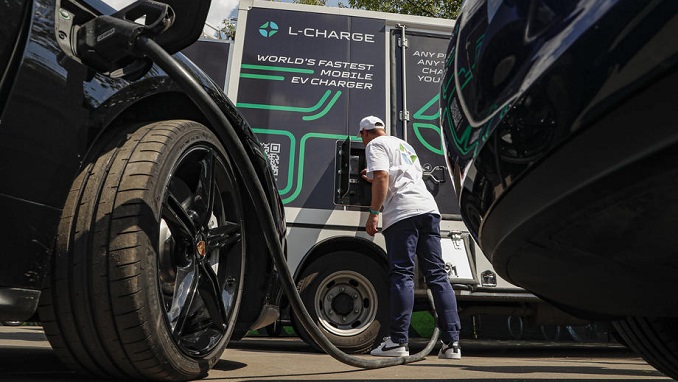In a new trial project, Russian electric vehicle owners will be allowed to use toll roads for free beginning in 2022, The Moscow Times writes citing a newly released draft government proposal.
The program, which is part of the new Development Concept for the Production and Use of Electric Automobile Transport signed by Prime Minister Mikhail Mishustin on August 23, seeks to promote the public’s adoption of electric cars.
According to the government’s draft plan, Russia’s annual electric vehicle sales will reach 25,000 by 2024 and would account for 10% of Russian auto sales by 2030, up from its current proportion of 0.05%.
The government intends to create a system of subsidized loans and leases to encourage EV sales in order to increase this percentage twentyfold in ten years. According to the proposal, manufacturers would get subsidies to construct new EV and battery facilities.
Some 50,000 kilometers of Russia’s 1,553,700 kilometers are federal roads. According to the state-run TASS news agency, toll roads account for just 1,950 kilometers or around 0.02 percent of the country’s road network.
The government plans to install 9,000 EV charging stations throughout the nation by 2024, with authorities hoping to increase that number to 72,000 by the end of the decade. The government also intends to build 1,000 hydrogen stations by 2030. These initiatives are anticipated to result in the creation of 39,000 additional employment in the electronics and other high-tech industries.
According to the Vedomosti business newspaper, the government intends to spend $10.5 billion on electric cars and hydrogen transportation by 2030.
So far, Russia’s EV investments have been concentrated on public transportation. Electric buses account for 0.6 percent of buses nationwide, rising to 5.5 percent in Moscow, which is closer to the EU average of 6.1 percent.
These investments come as an increasing number of developed countries consider phase-out of gas-powered cars as a way of lowering greenhouse gas emissions.
While Russia’s EV market has expanded considerably in recent years, it remains much less than that of European nations. In order to achieve its new strategic climate objectives of halving carbon emissions by 2030 and attaining carbon neutrality by 2050, the EU is now considering a complete ban on the sale of gasoline-powered cars by 2035.
President Vladimir Putin set a target in May for Russia’s greenhouse gas emissions to be lower than those of the EU by 2050.
However, with just a few weeks before the critical COP26 climate conference, Russia has failed to propose its new, more aggressive climate policy, as required by the Paris Agreement.
RELATED ARTICLES
ABOUT US
Eurasia News Now is an independent daily news website focused on key political, economic, and environmental issues in Eurasia, produced by journalists and subject-matter experts in the region and around the world.
Contact us: info@eurasianewsnow.com
Eurasia News Now©



